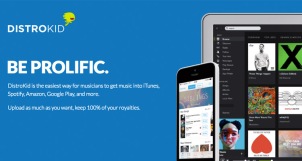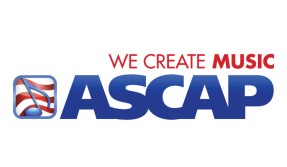 It’s hard to tell whether Apple is simply trolling Spotify with its pitch to the Copyright Royalty Board to adopt a fixed, per-use royalty rate for songwriting rights on streaming services in place or the current revenue-based formula, or whether it’s a serious proposal. But if it’s the latter, the CRB should at least consider the source before adopting it.
It’s hard to tell whether Apple is simply trolling Spotify with its pitch to the Copyright Royalty Board to adopt a fixed, per-use royalty rate for songwriting rights on streaming services in place or the current revenue-based formula, or whether it’s a serious proposal. But if it’s the latter, the CRB should at least consider the source before adopting it.
Whatever the proposal’s merits — simplified accounting, greater transparency, more money for songwriters — it has distinct echoes of Apple’s efforts to rewrite the rules for how ebooks are licensed that led to its being sued by the Justice Department for illegal price-fixing — a case Apple lost.
In that instance, Apple was looking to break into an ebook market thoroughly dominated by Amazon. At the time, Amazon purchased ebooks from publishers on traditional wholesale terms, just as it does printed books. Much to the chagrin of publishers, however, Amazon often sold ebooks at a deep discount, below its own cost, to help build the market for its Kindle ebook readers.
In the eyes of many publishers, that practice undermined the market for print copies, which were generally priced higher than the ebook version even without Amazon’s discounting. But there was little legally the publishers could do about it. Continue reading “Apple Dusts Off its Ebooks Playbook for Music”

 Last week’s
Last week’s  Google Search and Google Play Music are diving more deeply into song lyrics via a deal with LyricFind. Lyrics as an add-on have been getting attention lately. Apple Music is adding them. Spotify offered lyrics and recently dropped them, but insists their coming back.
Google Search and Google Play Music are diving more deeply into song lyrics via a deal with LyricFind. Lyrics as an add-on have been getting attention lately. Apple Music is adding them. Spotify offered lyrics and recently dropped them, but insists their coming back. In a keynote address at the CineEurope convention this week, MPAA Chairman and CEO Chris Dodd described the unblocking goals as a threat to the movie industry. Encouraging participants to reach out to their representatives, Dodd described the concerns as “real, very real.”
In a keynote address at the CineEurope convention this week, MPAA Chairman and CEO Chris Dodd described the unblocking goals as a threat to the movie industry. Encouraging participants to reach out to their representatives, Dodd described the concerns as “real, very real.”
 With this week’s announcement of the
With this week’s announcement of the 
 Paul Harrington, a leading session player on harmonica based in Rockwall, Texas, today announced that after a lengthy quest he has received digital session royalties for the Pitbull track, “Timber,” featuring Ke$ha.
Paul Harrington, a leading session player on harmonica based in Rockwall, Texas, today announced that after a lengthy quest he has received digital session royalties for the Pitbull track, “Timber,” featuring Ke$ha.





 ce the demise of the long-running-but-never-launched Global Repertoire Database (GRD) there has been a lot of debate over what comes next for digital rights reporting. The songwriter class action suits in the US against Spotify are the natural outcome of more than one and a half decades of failing to deal with the forsaken mess that is compositional rights in the digital era.
ce the demise of the long-running-but-never-launched Global Repertoire Database (GRD) there has been a lot of debate over what comes next for digital rights reporting. The songwriter class action suits in the US against Spotify are the natural outcome of more than one and a half decades of failing to deal with the forsaken mess that is compositional rights in the digital era.

 Since the CRB has raised the per-stream rate, it has made it harder for Pandora to survive. Scaling for Pandora was anyway a double-edged sword, always requiring higher payments to rights holders. Initially, those right holders had agreed on easier rates to allow growth and, back then, the establishment of Pandora. But Internet radio is now well developed, and the majors are not as easy going. The collective licensing agreement with SoundExchange is practical for Pandora though unpalatable, and unless Pandora can offer other services for a discount, such as the promotion of new releases, little will change.
Since the CRB has raised the per-stream rate, it has made it harder for Pandora to survive. Scaling for Pandora was anyway a double-edged sword, always requiring higher payments to rights holders. Initially, those right holders had agreed on easier rates to allow growth and, back then, the establishment of Pandora. But Internet radio is now well developed, and the majors are not as easy going. The collective licensing agreement with SoundExchange is practical for Pandora though unpalatable, and unless Pandora can offer other services for a discount, such as the promotion of new releases, little will change.